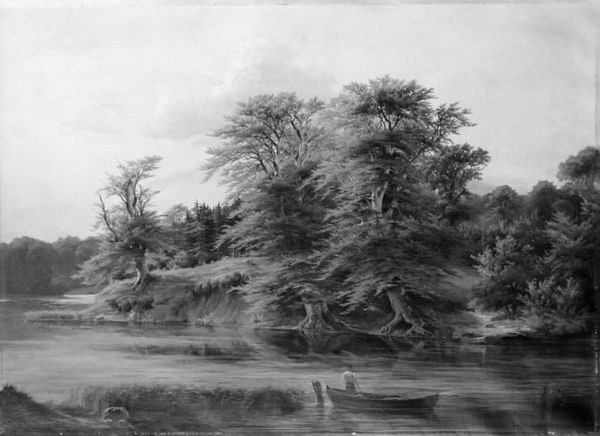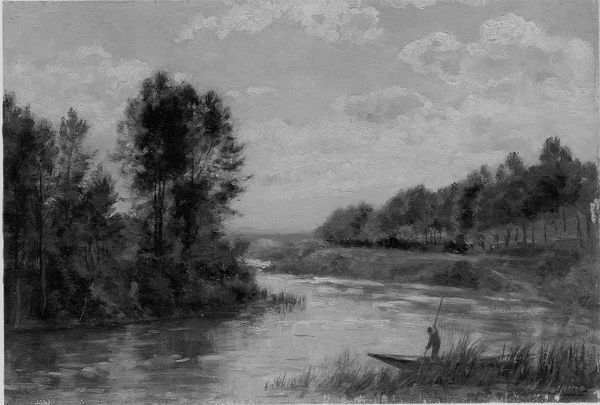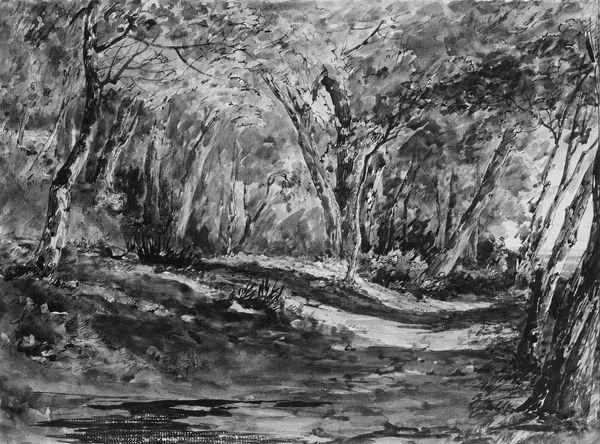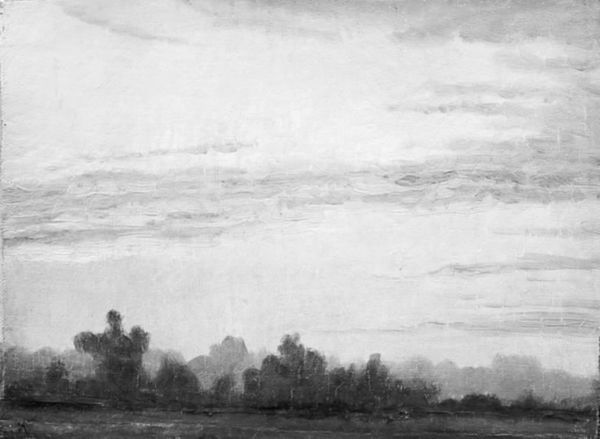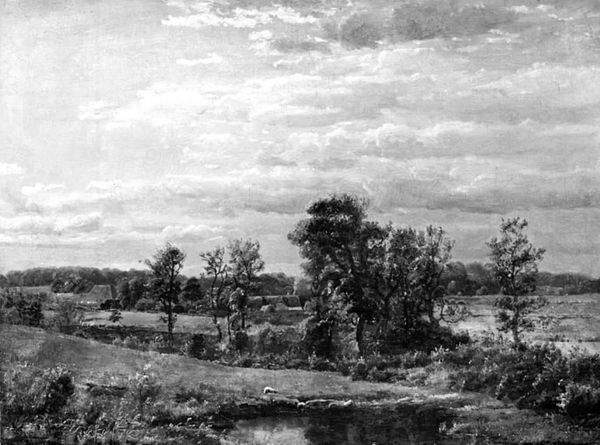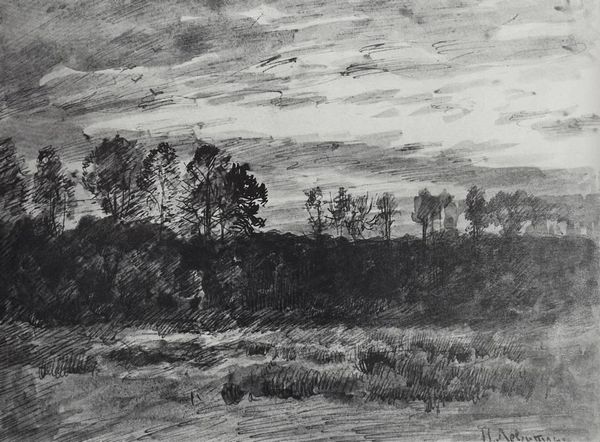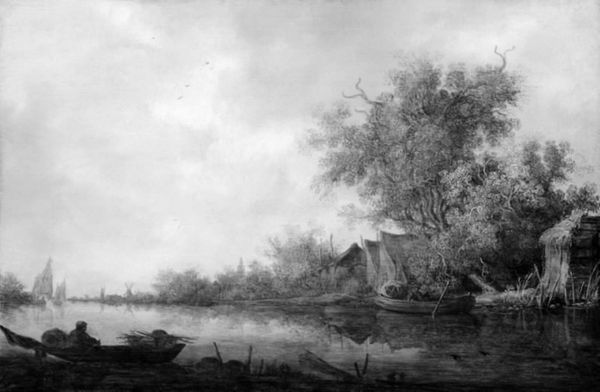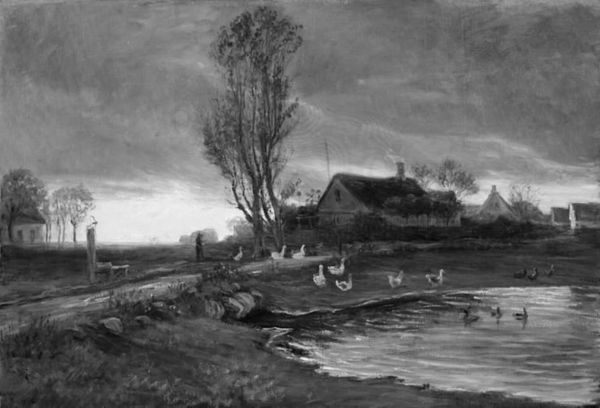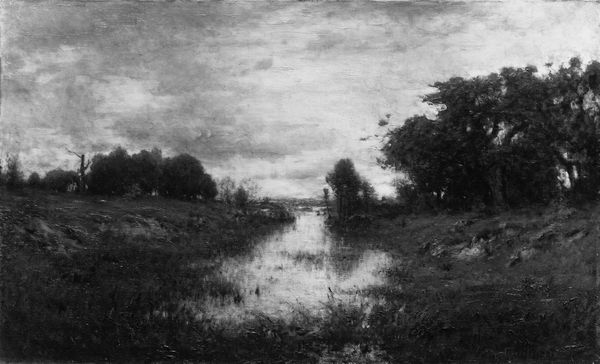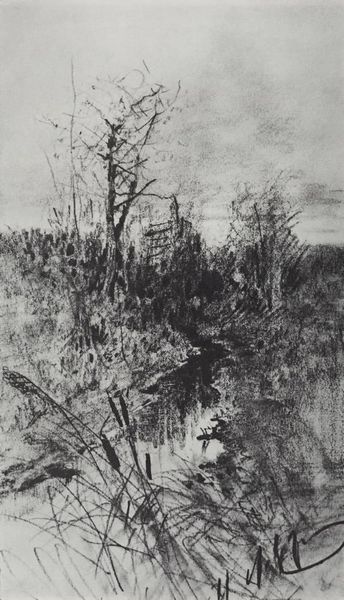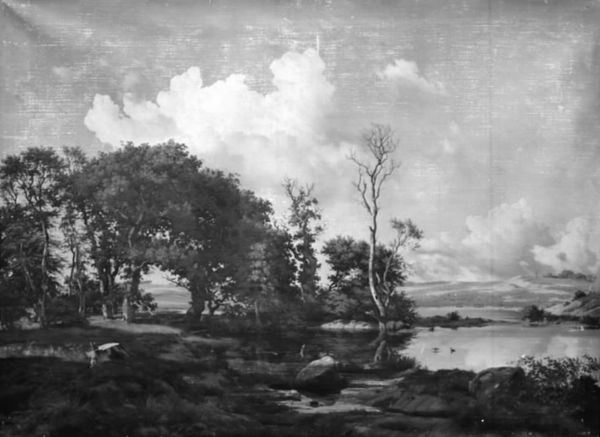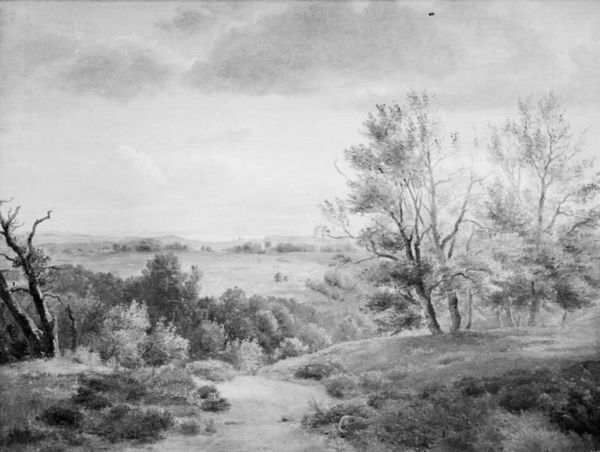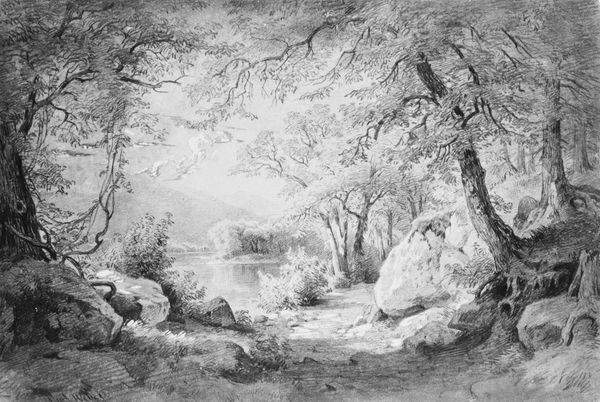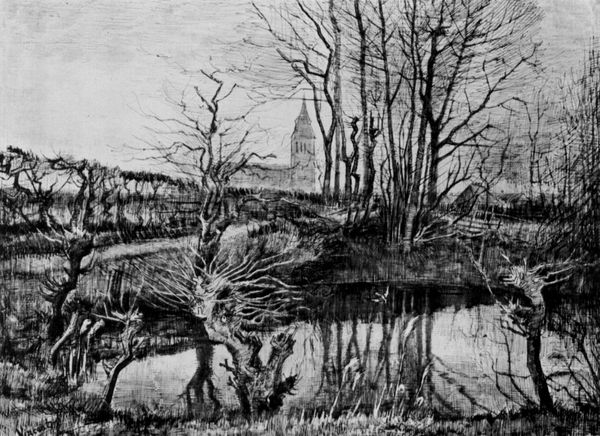
drawing, paper, pencil, charcoal
#
drawing
#
landscape
#
charcoal drawing
#
monochrome colours
#
paper
#
geometric
#
romanticism
#
black and white
#
pencil
#
charcoal
#
monochrome
#
charcoal
#
monochrome
Dimensions: 26.5 cm (height) x 33 cm (width) (Netto), 36.5 cm (height) x 43.2 cm (width) x 7 cm (depth) (Brutto)
Curator: Dankvart Dreyer rendered this drawing, titled “Landscape with a Rainbow”, between 1836 and 1839 using pencil and charcoal on paper. It's held here at the SMK, Statens Museum for Kunst. Editor: A quiet, almost melancholic scene, wouldn't you say? The monochrome palette emphasizes the vastness of the sky and reflects a certain subdued mood. Curator: The choice of materials really dictates that somber atmosphere. Charcoal and pencil afford Dreyer a spectrum of grays and blacks, ideal for capturing the subtle light and shadow play. There is a certain raw, unprocessed quality that's quite appealing. I wonder about his immediate surroundings; was this created on site, en plein air? Editor: Absolutely. This piece speaks of Romanticism, where nature holds great power. Notice the delicate details contrasted with the grand vista. Rainbows, after all, appear in art to suggest reconciliation, new beginnings. It is subtly optimistic against this stark, almost desolate environment. Curator: Right, but the actual physical labor… creating this piece using available resources impacts the end result, don't you think? What type of paper? Where did he obtain the charcoal? Editor: Fair enough. But look at the symbols he employs. A windmill suggests industry perhaps, yet it’s small and distant, overshadowed by the landscape. The trees along the river are full of vitality; they reflect strength and enduring nature. The drawing feels rife with an emotional message despite its physical composition and medium. Curator: I find that interplay intriguing as well; consider that his social conditions affected the means with which the piece was created. I think those social markers—availability, price, distribution--affect our viewing of the piece too. It feels…authentic in its materials. Editor: We seem to approach it from such divergent starting points, yet both recognize the core tensions within this captivating image! Curator: Exactly! This drawing truly lets us consider how production shapes reception. Editor: And ultimately, Dreyer provides a timeless symbolic window into nature and culture.
Comments
No comments
Be the first to comment and join the conversation on the ultimate creative platform.
